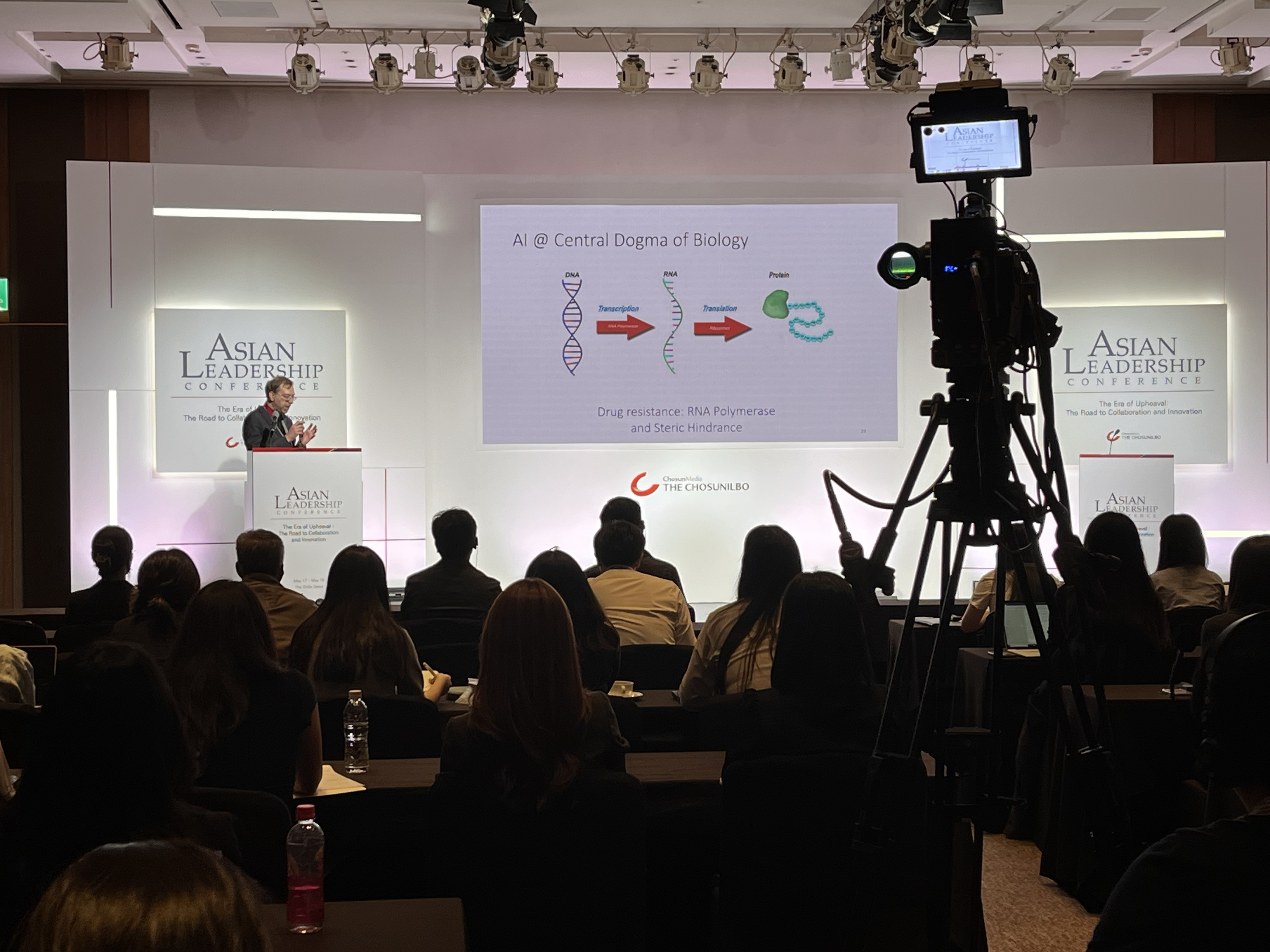From the 14th Asian Leadership Conference (ALC) emerged a vibrant discourse on the exponential growth and transformative potential of artificial intelligence (AI) technology.
The event shed light on how AI has revolutionized diverse sectors, including healthcare, agriculture, and gaming. Experts and innovators showcased remarkable applications of AI, ranging from analyzing genetic samples for tuberculosis treatments to remotely operating robots in smart agriculture.
Additionally, discussions addressed concerns about AI’s societal impact, particularly in terms of labor displacement and the rise of artificial general intelligence.
This article provides an overview of the insightful discussions and cutting-edge developments that unfolded at the ALC, revealing the far-reaching influence of AI across various domains.
1) AI Advancements in Healthcare and Education
At the event, experts focused on AI’s transformative role in healthcare and education. Professor Gil Alterovitz from Harvard Medical School showcased innovative applications of AI in these fields. For example, researchers employed AI to analyze genetic samples of tuberculosis patients, enabling the identification of genetic characteristics that impact the effectiveness of tuberculosis treatments. Additionally, Professor Alterovitz collaborated with high school students to publish a poetry book generated with the help of AI, aimed at stimulating interest in science and mathematics among young learners.
2) AI Revolutionizing Agriculture for Sustainable Food Production
The ALC also shed light on AI’s significant contributions to the agricultural sector. Professor Noboru Noguchi from Hokkaido University and Sony researcher, Kentaro Matsuwara unveiled cutting-edge AI-based smart agriculture technologies. They demonstrated how robots, operated remotely by a small team, effectively executed tasks such as sowing and weeding. Leveraging AI, these robots autonomously assessed crop conditions and provided precise amounts of fertilizers or chemicals accordingly. Professor Noguchi emphasized the urgency of developing smart agriculture to address Japan’s aging population and ensure sustainable food production. This sentiment was echoed by Kim Dohoon, CEO of TYM, a leading farm machinery company, who highlighted the global population growth projections and the critical role AI-based agricultural technologies will play in meeting future food demands.
3) Embracing AI in Gaming and Considering Societal Impact
The ALC dedicated a segment to exploring the implications of AI in the gaming industry and its potential broader effects on society. Li Ruipei, CEO of Chinese game company ’37 Interactive,’ acknowledged concerns about job displacement in gaming due to AI advancements. However, he encouraged industry players to embrace these developments and harness AI’s capabilities rather than fearing them. In gaming, AI has already demonstrated its ability to generate initial designs, costumes, weapons, and other elements traditionally handled by designers. By leveraging AI for tasks that it excels at, human game developers can focus on areas that require creativity and ingenuity. Additionally, discussions at the conference highlighted concerns about the future impact of artificial general intelligence (AGI) and the need for careful evaluation of AI’s influence across various sectors, considering its potential effects on labor and society as a whole.
Learn more about the Center for Asia Leadership’s programmes in strategic foresight and adaptive leadership here at bit.ly/lead-asia.
What is your response to the rapid pace of change around us? The best response is to learn and adapt. Here is how we can help your organization adapt to ongoing disruptions and thrive amid challenging times through our Adaptive Leadership Signature Program that addresses the past culture, while building the teams’ capacity to create a new future.



